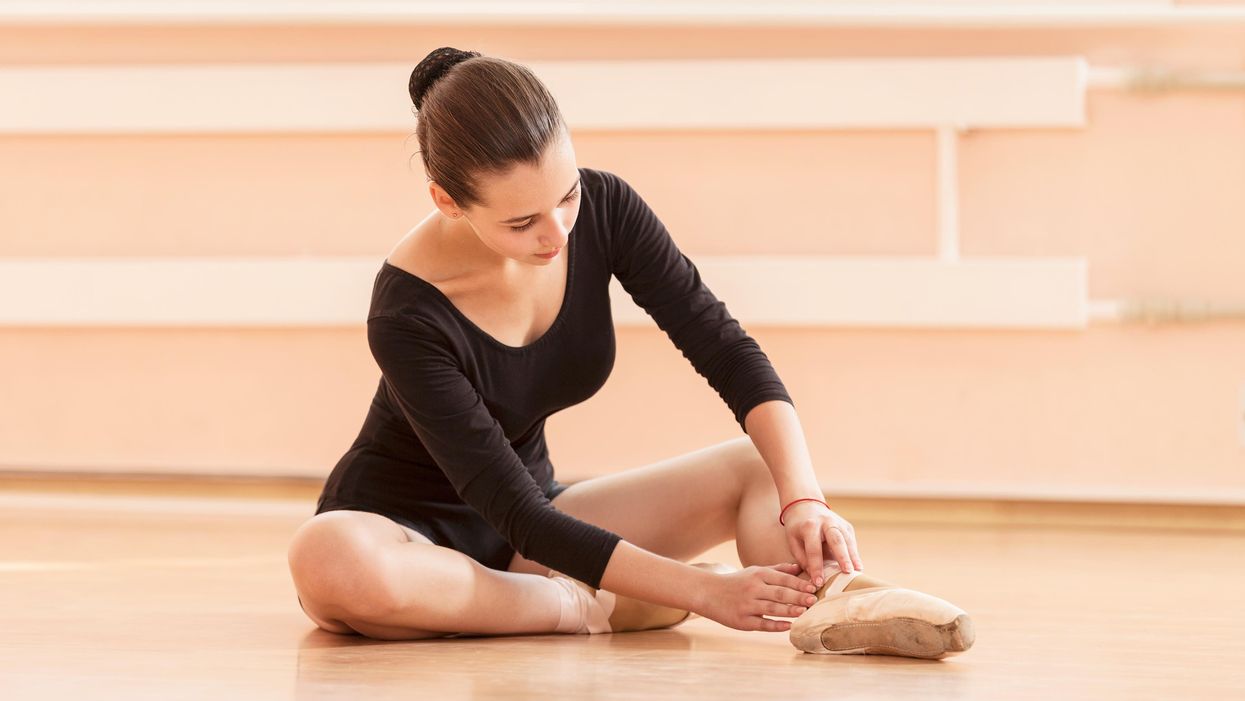
The ballet world is filled with stories of dancers who first pointed their toes as toddlers and became professionals as teenagers. But what about those who started ballet as teenagers—and then realized that they wanted to make it their career? Their experience can be as thrilling as it is overwhelming, and also inspire a bit of panic. Late starters might wonder: "How will I ever catch up to the level of my peers, and what do I need to do to make that happen? Is it too late for me to ever become a professional?"
When Minnesota Ballet dancer Ximena Azurmendi took her first ballet class at age 13, falling in love with ballet was the furthest thing from her mind. In the summers she would study jazz and aerial dance in her hometown of El Paso, Texas, and her mother and aunt suggested she give ballet a chance. Still, she resisted the idea. "I thought ballet seemed boring, but my mother, who wanted to be a dancer when she was younger, kept encouraging me to take classes," says Azurmendi.
It wasn't long before she changed her mind about ballet. "My mom was like, 'I told you so.'" By age 15, Azurmendi realized she wanted to try to become a professional.

For Alejandro González, who grew up in Venezuela, beginning ballet lessons at 16 also started as a way to improve technique in genres he was already training in—in his case, break-dancing and contemporary. He'd also been around ballet for years since his sister, Karina González, now a principal with Houston Ballet, performed with Ballet Teresa Carreño in Venezuela. "When I'd go to watch her perform, I was always paying attention to what the guys were doing onstage. I liked watching their jumps and turns," he remembers.
It was Karina who first suggested that he give ballet a try. For Alejandro it started as a hobby, but, after a year of training, Karina noticed a lot of improvement and suggested he attend the summer intensive at the Houston Ballet Academy, where he trained for two years. He went on to attend Oklahoma City Ballet's summer intensive in 2017 and was offered a studio company position. Two years later, he was promoted to the corps and will continue into the 2021–22 season as a soloist.

For Azurmendi and González, ramping up on classes during their first years of training helped them begin to catch up with their peers. Azurmendi's family relocated to Florida so that she could train with Magaly Suárez at The Art of Classical Ballet before attending Alexander W. Dreyfoos School of the Arts. (She continued private lessons with Suárez when possible.) González trained every day and supplemented his regular ballet schedule with classes for students ranging from 6-year-olds to adults. In the age of digital media, the two dancers also say watching ballet videos online helped them gain better understanding of the art form.
Taking lower-level classes is a strategy for late starters recommended by San Francisco Ballet School teacher Jason Ambrose, who began ballet at age 17. "I don't think beginners realize how easy it is to learn bad technical habits and how hard it is to relearn correct technique," he says. Ambrose credits his own progress in ballet with taking classes with younger students during his early years of training, as well as performing modified combinations in his regular classes at the direction of his teacher, Ana Maria Martinez of the Virginia Beach Ballet Academy. "Learning steps slowly and correctly is the foundation of technique," he says.

Finding balance between having realistic expectations and not getting discouraged can be an uphill battle for late beginners. While it's important for all dancers to focus on their individual journeys, Ambrose also believes that late beginners who want to become professionals need to pay attention to their peers in order to have honest self-evaluation. "The ballet world is very competitive, and the higher you aim your sights, the fewer job opportunities are available," he says.
Yet evaluation of one's abilities is not the sole responsibility of ballet students, who are often very hard on themselves. If you are a late starter, your teacher can make or break your experience. You want to work with a motivating, encouraging instructor you trust. "My teacher, Ana Maria Martinez, was very honest with me about time being of the essence, but likewise was persistent and patient," says Ambrose. "When I first started ballet, I would sometimes skip class for a week because I was so discouraged. But she would call me and say, "J. Ambrose, are you coming to class? I want you to come."
The million-dollar-question for those who want to go professional is always: "Is it too late?" The answer is ultimately up to each dancer, but Ambrose encourages the choice, despite what one's detractors might say. "Why not? Go for it," he says. "No matter what happens, I think you can have peace with an experience when you know that you gave it your all. At the end of the day, the only thing you will regret is not trying."
from Pointe https://ift.tt/3uaQgpL

ليست هناك تعليقات:
إرسال تعليق